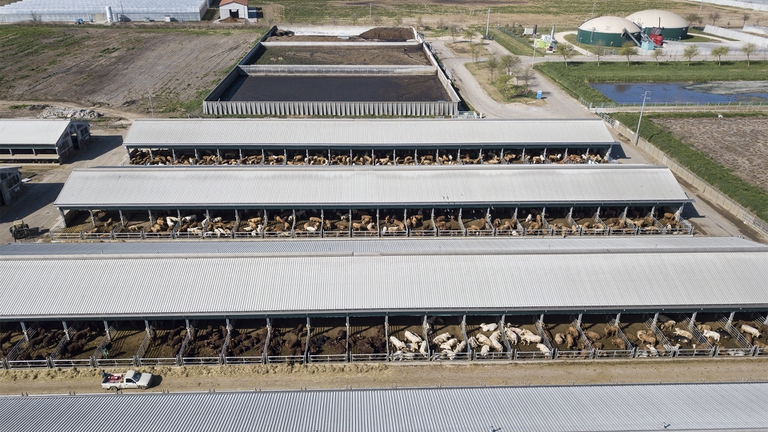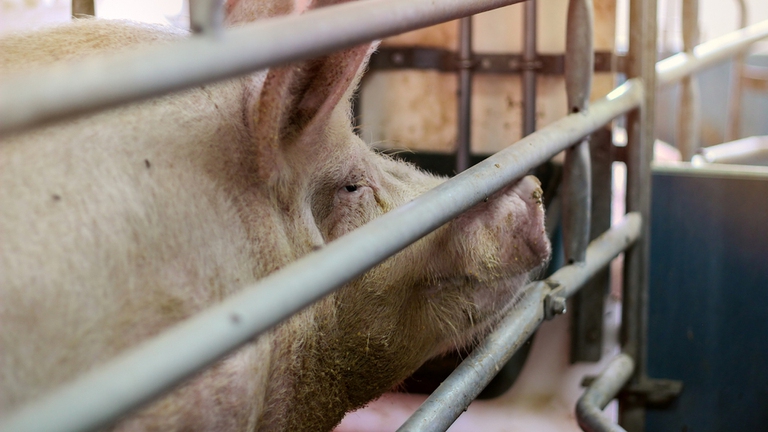https://www.lifegate.it/proposta-legge-oltre-allevamenti-intensivi
- |
- Last winter five associations presented a bill to stop new intensive farming.
- The text, signed by 21 parliamentarians, was published in the Chamber and the timetable for discussion is awaited.
- For the promoters of the proposal, a reconversion of the production system is necessary and urgent.
It was published on the website of the Chamber of Deputies bill “Beyond intensive farming.For an agro-ecological transition in livestock farming”, presented last winter in Montecitorio by the associations Greenpeace Italia, Isde – Doctors for the Environment, Lipu, Terra!and WWF Italy. To sign the text have been so far 21 parliamentarians, coming from five political groups (We Moderates, PD, AVS, M5S and FI) and now the promoters hope that the proposal will be scheduled for discussion.

From the stop to new intensive farming to funds for the transition:what the bill contains
The bill aims to make protagonists the small farms, recognizing the fair price for small producers and guaranteeing consumers theaccess to healthy, quality foods;the text therefore aims to put a brake on the opening of new ones intensive farming and toincrease in the number of animals raised in existing ones and proposes to encourage the ecological transition of large and medium-sized companies with a sector reconversion plan, financed with a dedicated fund.
“The increasingly frequent extreme climatic events, with heavy repercussions on the quality of air, water and soil, as well as the crisis in the agro-livestock sector, require a rapid transition towards a model that abandons intensive methods and aims at greater food efficiency, favoring production with lower consumption of resources and with lower environmental, social and health impacts", declared the five associations promoting the proposal.
“The livestock sector consumes a lot of water and emits greenhouse gases, contributing heavily to the climate crisis.It is a system that must change,” he added Eleonora Evi, member of the Democratic Party and first signatory of the text together with the president of the intergroup Vittoria Brambilla.“This is why it is so important to schedule the bill as soon as possible to overcome intensive farming and, above all, give a new ecological perspective to the agriculture sector”.
The necessary reconversion of food systems
The associations recall the problems linked to intensive farming, from the production of emissions at the exploitation of soil and water, from the difficult ones working conditions in the sector to the impact on biodiversity and the fact that the'80 percent of European funds for Italian agriculture is intended for 20 percent of the beneficiaries, a system that penalizes small companies and favors larger ones.

For this you need one reconversion of the current system also in light of the failure to achieve environmental pollution targets:from the Directive Nec, which commits Italy to reducing the ammonia emissions and of PM2.5, at the Nitrate Directive and to Water Framework Directive to achieve the good ecological status of rivers and lakes, up to the necessary implementation of the strategies Farm to Fork And Biodiversity 2030 of European green deal, which argues that food systems urgently need to become sustainable and operate within the planet's ecological limits.
